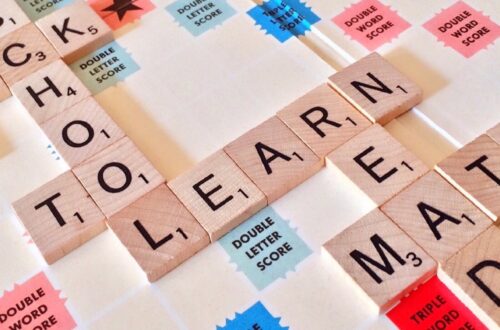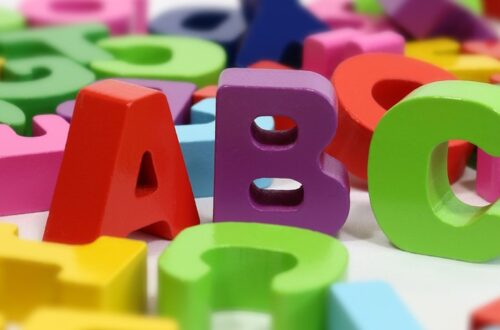
Learning Takes Time
Learning takes time. As I have taught throughout the years, one of the things that has stuck out to me is that everyone learns at their own pace.
I became very aware of this while I was teaching private music lessons. My students would all learn the skills at a different rate. As long as they were learning, we were making progress!
It’s Ok to Be a Beginner
A music teacher would never expect a beginner to be playing advanced songs! The same thing applies to other subjects in school.
When I began teaching my kids at home, I realized that I needed to approach home learning in the same way that I approached my private teaching students. My children needed time to learn and acquire these new skills of reading and math, and it would not happen on my schedule.
Learning takes time! In our homeschool practice, that may mean that some skills need more days than the curriculum allocates. We may need to slow down to reinforce concepts that our children don’t understand. Or, perhaps it is the opposite. Maybe we can move a little faster because our child understands.
We can embrace this flexibility and allow our children the time to learn at their own pace.
I came across this anecdote that I wrote many years ago which emphasizes the concept of learning takes time.
From the Archives: April 21, 2010
I am learning that I am not the most patient teacher in the world. In fact, as I write this, I am listening to my eldest, who is 7, work on his addition and subtraction facts in the next room. And every few minutes I have to suppress the urge to go in there and make him do it faster.
Then, I stop and think about what the rush is. Really, does it matter how long it takes for him to do the addition and subtraction problems? I didn’t make this a timed drill for him.
He has his stacking cubes and is inventing addition and subtraction stories with the cubes. They have now become train cars, coaches, or space ships. He is engrossed in his math stories and having a blast.
I am in the other room, trying to exercise my patience and not interrupt this learning moment.
Does Quick Equal Success?
Why is it that I want him to finish this assignment so quickly? Is it so that I can get on with my day? Do I have something more important to do with my day than his education? Is the day a failure because math went longer than expected? Where is the bell that will ring to end this subject?
There is no bell in home education. I grew up in the classroom, with timed assignments, and bells, and homework. If you didn’t finish in time you would have to take it home and work on it. Everyone knows that it is better to finish the work at home rather than take it home. Who wants to do the work at home?
Unless all your work is done at home. Then, it’s all homework!
Math Games
As I am writing this, my son has invented a math game that he is rather proud of. He is doing a subtraction table of 7. He has decided that the 7 will shoot the other cubes, and then whatever is left over is the answer. He has a whole dialogue going on with his math cubes. The subtraction has turned into a fantastic imagination story, complete with a song that he is inventing along the way.
Ah, the mind of a child. The ordinary can become amazing with a little imagination. And yet, what does my adult brain want to do with this? I am tempted to squelch it and hurry it up so that I can move on with the rest of the day.
These moments are what my husband would call “disguised learning”, and I know that he would encourage me to let the imagination continue for the rest of the assignment.
Success Doesn’t Always Equal Efficiency
I want to define success by timely efficiency. School went quickly today because I was efficient. I am a better homeschool mom because school was done before lunch.
But, is that really success? Isn’t the purpose of school to learn? Who says that addition and subtraction facts need to be dry and boring? Why can’t my son invent stories of shooting ships and train cars during the math lesson?
Perhaps I need to go back to looking at the objectives of this lesson. What are the learning goals for this math assignment?
The objective is to practice addition and subtraction facts to 17 and 18. What is my son doing? He is practicing and modeling the facts using manipulatives. Later, I will check his problems for accuracy.
The objectives do not include a time limit for this worksheet. The only thing I risk by letting him use the manipulatives and continue the “play” is that it takes longer than I want.
But, whose assignment is it? It is not mine, it is his. So can I step out of my box, and let the learning take the time that it needs?
Learning Still Takes Time
My eldest is now in his senior year as a virtual learning student. He doesn’t do his math with cubes anymore, but he has been known to take hours on one assignment.
He has greatly benefited from the flexibility to take his time as a student on whatever is interesting or challenging. I’ve gotten much more patient over the years, but that process does take time!
Some school days will go quickly and some will go long. That is part of this process. As we develop our skills as a learning coach, we can get better at allowing our children the individual time that they need to learn.
Learning takes time. It is not always the time that we think it should take. But, it is the time that the learner needs. We can support our home learners by allowing them the time they need to master the subject at hand.
Jennifer Douglas
Jennifer Douglas is an author, patient advocate, and DCIS breast cancer survivor. After navigating her own breast cancer journey in 2019, she began writing and encouraging others who were newly diagnosed. Her resources include her book, "A Breast Cancer Journey: Living It One Step at a Time," and her online support course, "Encourage: Breast Cancer and Beyond." Jennifer also actively supports patients through her online presence and direct involvement in communities and support groups, offering guidance and encouragement every step of the way.


You May Also Like

How to Stay on Track with Virtual School
September 11, 2020
Bare Minimum Homeschool Day
September 18, 2020
